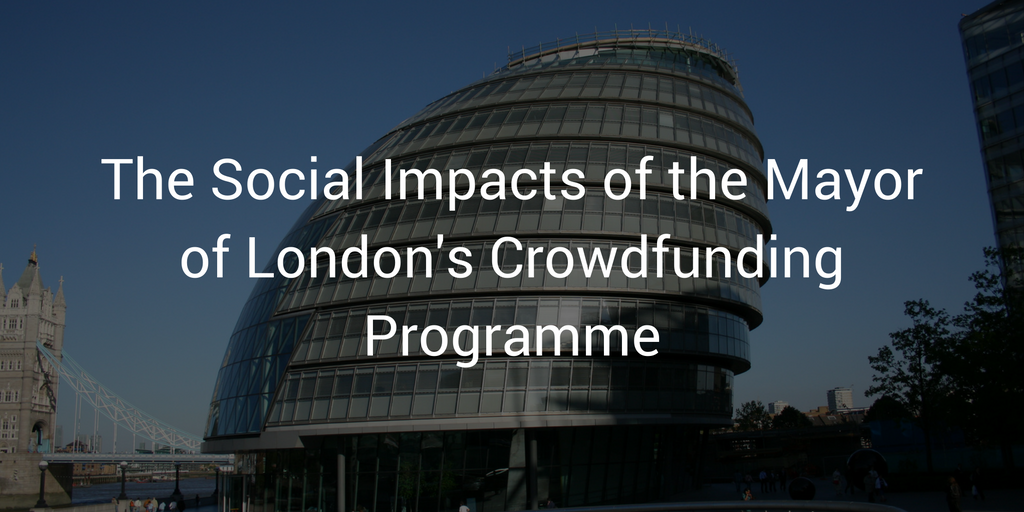This is an extract from “Understanding the social impacts of the Mayor’s Crowdfunding Programme”, research and analysis on the first two rounds of the Mayor of London’s Crowdfunding programme with Spacehive. Read the full report here.
The social impacts of the Crowdfunding Pilot are extensive and appear to infiltrate into all aspects of participants’ lives, as well as throughout the communities in which projects are situated. These include improved community cohesion and democratisation in the urban re-development process, growth of skills and knowledge that contribute to personal and professional development, as well as opening up local government processes to a wider and less-active section of the population, and improved outlook on life, partly manifest through civic pride and an improved sense of place, as well as through a project delivery process that involves making friends, growing networks, and feeling part of something bigger than oneself.
There are some challenges to be overcome that sit alongside these impacts – namely dominance of certain groups over others, intense time and skills requirement to the point of social exclusion, and fatigue and stress.
However, despite these drawbacks, the thinking behind the Mayor’s Crowdfunding Programme is sound, and its delivery in rounds 1 and 2 has been good, with research conducted for this study indicating net overall satisfaction and generally, an excitement for an emerging new method of local government action and deliver, and local engagement. Overcoming and learning from challenges in the Programme’s development has been significant for understanding the method being employed.
Whilst it may be easy to suggest that a crowdfunding programme developed and/or promoted by a public body is indicative of a further roll back of the state, the GLA’s pilot Programme highlights how a new, rather than reduced, role for local government is being carved out.
This role centres around facilitating and protecting equity and inclusion within a broader context of alternative finance and market-led approaches to development projects. Indeed, it appears that without government involvement in crowdfunding schemes – particularly those which deal with issues as contested as land use change – equity and involvement of deprived groups or those in deprived areas might be compromised.
The Mayor’s Crowdfunding Programme never intended to position itself as an alternative to strategic regeneration efforts that are traditionally delivered by the GLA, but rather a supplement to these methods, which effectively presents a new model of engagement around the built environment, providing a more collaborative and inclusive approach to regeneration.
This model, where citizens can wholesale deliver a project or engage through pledging a small amount of money to a project in their local area and beyond provides enables individuals to engage in a proactive rather than reactive manner, can help develop community cohesion and civic pride, and through the process of delivery, plays an educative function which appears, in our cases, to lead to knock-on democratisation.
Ultimately, it is the communities and their willing, meaningful engagement and energy that drives the success of the Mayor’s Crowdfunding Programme and the plethora of positive social impacts that have emerged throughout Rounds 1 and 2.
Crowdfunding as a model of financing projects is likely only to increase over time, with or without state involvement, thus the GLA is playing and will continue to play a fundamental role in upholding social equity, building capacity and ensuring appropriate use of land and infrastructure.
With some carefully considered modifications for the programme and appropriate resourcing of the programme long-term, the positive social impacts can continue to be felt across London’s geography and communities moving forwards. Moreover, the GLA’s commitment to sensitively developing and refining such a programme should provide a best practice example for other regional or local governments’ inception of similar initiatives, highlighting that crowdfunding is not a matter of reduced government action, but alternative government action in a time of emerging alternative finance.
Read the full report “Understanding the social impacts of the Mayor’s Crowdfunding Programme” here.

